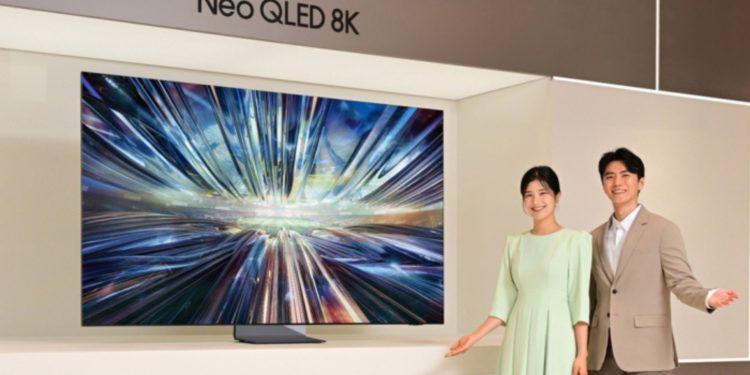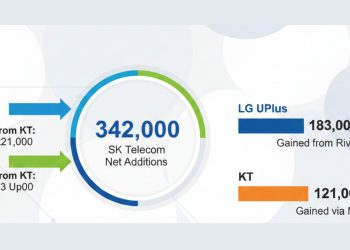Samsung Electronics announced on Wednesday its integration of artificial intelligence technology into its 2024 TV lineup, aiming to rival its local competitor, LG Electronics, which dominates the OLED TV market segment.
During the Unbox & Discover 2024 event held at its headquarters in Seocho-dong, southern Seoul, Samsung unveiled its latest Neo QLED and OLED TV range, which will be available in the domestic market starting this Friday.
Samsung’s latest TV models come embedded with AI technology, a feature first introduced with its flagship Galaxy S24 smartphone series. Yong Seok-woo, president and head of Samsung’s visual display division, said the Korean market is a global trendsetter in premium and ultra-large TVs. He stated that the 2024 Samsung models represent the culmination of the company’s technological prowess, maintaining its position as the global TV market leader for 18 years and heralding the era of AI TV.
The newest product has a third-generation AI 8K resolution processor featuring 512 neural networks—eight times more than its predecessor. It integrates a neural network processing unit (NPU) that works faster, almost twice as much, enabling users to view better picture quality with an upscale to 8K resolution.
Available in 85-inch and 75-inch variants, these models maintain the same price point as their predecessors, ensuring accessibility without compromising technology.
Samsung’s entry into the OLED TV market is planned with the 2024 OLED TV lineup equipped with the second-generation AI 4K processor. This advanced processor upscales picture quality to 4K resolution while effectively controlling brightness. Additionally, glare-free technology minimizes screen reflections, enhancing viewing comfort.
LG Electronics introduced its 2024 TV lineup, featuring the LG OLED Evo and QNED Evo, focusing on AI technology. The flagship LG OLED Evo is equipped with the Alpha 11 processor, delivering four times the AI processing power of its predecessor, the Alpha 9. This advancement allows for meticulous pixel analysis and enhancement, elevating image quality significantly. Moreover, the graphic performance has increased by 70 percent, and processing speed has been enhanced by 30 percent, further enriching the viewing experience for consumers.
Also Read:
- KT and Novatek Join Forces for Next-Gen Logistics Automation Platform
- Naver Collaboration Boosts HD Hyundai’s Digital Shift
- Samsung Display CEO Charts Korea’s Path to Global Display Market Dominance by 2027
- Naver Unveils ARC Mind: World’s First Web Platform-Based Robot Operating System
- LG Energy Solution’s subsidiary KooRoo Launches Battery-Swapping Service for Electric Scooters







